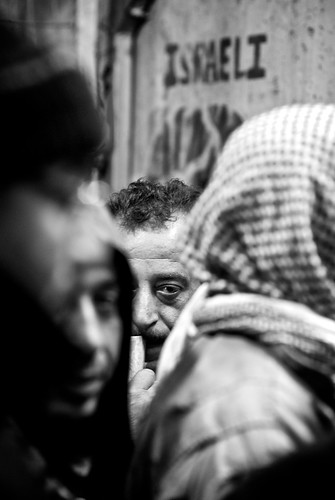Yesterday felt like quite a special meeting of the book group. For one, we met in N’s new house. For another, there were so many of us that N ran out of mugs. For yet another, we welcomed several first time attenders, who had been attracted by our choice of T S Eliot’s Waste Land and Four Quartets. Several people talked with love of how his poetry spoke to them. Eliot originally planned to call The Waste Land 'He Do The Police In Different Voices', and voices became a theme of the meeting.
There was a view that Eliot’s religious sense can run the risk of religiosity, which is off-putting to some readers; this blossomed into a rich exchange. I can’t do justice to it, really (can others who were there help me out in comments?), but it was about the way some ‘religious’ poetry seems written primarily to show off the writer’s religion (or to convince themselves of it), rather than coming more from a place of spiritual searching. The first lines of Burnt Norton were quoted as an example of this hesitant, quite compelling, exploration.
We listened to a recording of Eliot reading his own verse in a booming, rather mannered patrician voice, then to Paul Schofield reading the same extracts. Schofield’s voice was mellifluous and charming, but somehow less engaging than Eliot’s flawed delivery. It reminded me of something David Byrne of Talking Heads said – that he knew his singing voice was poor, but he felt this lack was of use, in that it did not draw attention away from the content of his songs. There is something here about ministry too, perhaps.
Then someone said how Eliot’s fragmented, many-voiced work, covering a wide range of idiosyncratic voices, reminded them of how Meeting can be.
And someone commented that just as Cubism and modernist verse demanded a constant shift in focus in their audience, perhaps this ever-changing focus may be the way we approach spiritual mysteries most rewardingly.
Finally, our Central Meeting has a member who had afternoon tea with Mr Eliot in 1947 or thereabouts; he has a fascinating story to tell. If you are reading this, we would love to hear it!







